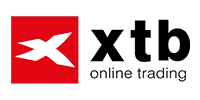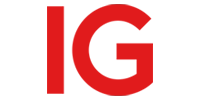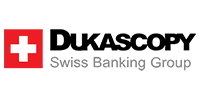Table Of Contents
- What Is FOREX Trading?
- What Does the Term FOREX Mean?
- An Introduction to the FOREX Market
- How Does Currency Trading Take Place?
- How To Read A Currency Pair On a Trading Platform?
- What Drives Movements in the FOREX Market?
- How to Make FOREX Trading Profitable?
- Currency as an Asset Class
- Trading Tools for Beginners
- What Are Online FOREX Trading Companies?
- What Are Islamic FOREX Accounts?
- How Do You Gain Experience in FOREX Trading Quickly?
- Additional Information that Would Help You in FOREX Trading
- What is leverage?
- What is a lot in FOREX?
- What is a pip in FOREX?
- What is a spread or a spread differential?
- Why Is It Advisable To Trade FOREX With Arincen?
- Conclusion
The Complete Guide to FOREX Trading
So, you want to learn about FOREX and how to trade it? Like many new traders, you may have seen advertorials where FOREX traders become fabulously wealthy and don't have to work again as they live in the lap of luxury. The chances of this happening to the average trader are extremely rare. The truth is that gaining extreme wealth by trading FOREX is an unreachable dream for most, and many people lose money while pursuing this dream. Is FOREX trading profitable? It can be, but only after you learn much more about the market, develop a robust trading plan, trade consistently over time, and take the inevitable wins and losses as you go.
FOREX trading has been gaining popularity in recent years. Indeed, according to several online sources, the number of FOREX traders has snowballed to 15 million over the past half a decade. Chances are your friends have boasted how much money they are making through FOREX trading, or maybe you have recently stumbled upon FOREX trading and have become hooked. There is much to learn about what it's really like in this space.
So, let us talk about what FOREX trading really is about.
The best brokers recommended for beginners and retail traders include ICM Capital, XTB, IG Markets, and Dukascopy.
FOREX trading is the exchange of one currency for another in pairs like EUR/USD and is driven by economic data, news, central bank policies, and market sentiment.
The market operates 24 hours a day across global financial centers and offers retail traders access through online platforms with minimal starting capital.
Spot, forward, and futures markets give you different ways to access currency exchange with varying levels of risk and complexity.
A pip measures price changes, while a spread represents the broker’s fee, and leverage allows you to control large positions with smaller capital.
Islamic accounts offer Sharia-compliant trading options by eliminating interest-based transactions while still providing access to standard trading features.
As a beginner, you should start with a demo account, study price movements, and follow verified experts before transitioning to real capital investments.
What Is FOREX Trading?
The FOREX market is the marketplace in which participants can buy, sell, exchange and speculate on currencies, with the aim of earning a profit. The currency market – which comprises banks, commercial companies, central banks, investment management firms, and hedge funds in addition to retail FOREX brokers and investors – is the largest financial market with over $7 trillion in daily transactions.
When it comes to FOREX trading, there are several questions any ambitious person wanting to enter the market for the first time needs answered. As such, this article is mostly a guide for traders at the beginning of their journey. It aims to provide answers in a simple and clear way, helping paint a complete picture of what FOREX trading is and how to master it.
What Does the Term FOREX Mean?
Foreign Exchange (FOREX in short) is the trading of one currency for another. For example, one can swap the US dollar for the Japanese Yen. Foreign exchange transactions can take place on the foreign exchange market, also known as the FOREX Market. This is a global marketplace for buying and selling currencies. Unlike stock markets, which operate within specific hours, the FOREX market runs 24 hours a day, five days a week, across major financial hubs like London, New York, Tokyo, and Sydney.
At its core, FOREX trading involves exchanging one currency for another in currency pairs. For example, in the EUR/USD pair, a trader buys euros while simultaneously selling US dollars. The price of a currency pair reflects the exchange rate between the two currencies and fluctuates based on supply and demand, economic data, geopolitical events, and central bank policies like interest rates.
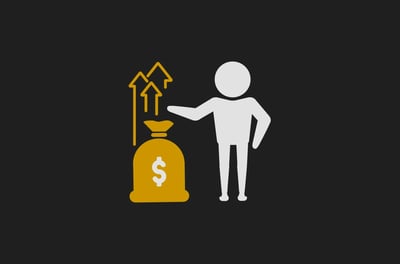
An Introduction to the FOREX Market
As above mentioned, the FOREX market, where currencies are traded, is the largest financial market in the world. The FOREX market is unique in that it allows individuals to trade online, be it as a side job to make extra money, or as full-time work. This can be done either on a personal computer (PC) or on a smartphone. The market has several key actors, chief among them are:
Central Banks
Commercial Banks
Hedge Funds
Financial Institutions
Governments
Individual Investors and/or Currency Speculators
In contrast to shares or commodities, FOREX trading does not take place on actual exchanges, but directly between two parties, in an over the counter (OTC) market.
There are three different types of FOREX markets: The spot FOREX market, which takes place on the spot or within a short period of time. This is a market in which the physical exchange of a currency pair takes place at the exact point the trade is settled. The forward FOREX market is one marketplace where a contract is agreed to buy or sell a set amount of a currency at a specified price, to be settled at a set date in the future or within a range of future dates. Finally, there is the futures FOREX market, whereby a contract is agreed to buy or sell a set amount of a given currency at a set price and date in the future. Unlike forwards, a futures contract is legally binding.
It is noteworthy that when people refer to the FOREX market, they are usually referring to the spot market. The forward and futures markets tend to be more popular with companies that need to hedge their foreign exchange risks out to a specific date in the future.
How Does Currency Trading Take Place?
FOREX trading is the real-time buying of one currency and selling another. Currencies are traded through a broker or a dealer and are traded in pairs. Currencies are quoted in relation to another currency. In this regard, the most common currency pairs in the FOREX market (also known as major pairs) are the:
EUR/USD
USD/JPY
GBP/USD
EUR/JPY
AUD/USD
NZD/USD
CAD/USD
These pairs comprise the currencies of some of the most developed economies in the world. The rest of the currencies globally are categorized into minor or exotic currencies. Retail currency trading takes place on a decentralized market, where individual traders like you speculate on exchange rate movements using online trading platforms. Unlike institutional FOREX trading, which involves banks, hedge funds, and corporations, retail FOREX trading is conducted through beginner-suited brokers that provide access to the interbank market.
Recommended Brokers
How To Read A Currency Pair On a Trading Platform?
Reading a currency pair on a trading platform is straightforward once you understand its structure. Every currency pair consists of two currencies: the base currency (the first currency) and the quote currency (the second currency). The exchange rate tells you how much of the quote currency is needed to buy one unit of the base currency.
Example of a currency pair
On a trading platform, you might see something like this:
EUR/USD – 1.1050 / 1.1052
Here’s how to read it:
EUR (Base Currency) – This is the first currency in the pair. It represents the currency you are buying or selling.
USD (Quote Currency) – This is the second currency in the pair. It represents the currency you are using to buy or sell the base currency.
Bid Price (1.1050) – The price at which you can sell the base currency (EUR) to buy USD.
Ask Price (1.1052) – The price at which you can buy the base currency (EUR) using USD.
Spread (0.0002 or 2 pips) – The difference between the bid and ask price. This is the broker’s fee for executing your trade.
What Drives Movements in the FOREX Market?
Like most financial markets, the FOREX market is primarily driven by the forces of supply and demand, as well as by other factors, as will be discussed in brief below.
As for supply factors, key players are the central banks of respective countries and the monetary policy measures they take. For example, if America’s Federal Reserve announces quantitative easing, defined as the act of injecting more dollars into an economy, then the USD’s price will, in all likelihood, drop. Did you know that the US national debt can affect your trading portfolio, you'll find out how when you read our article.
Other factors with the potential of affecting the price of a currency include news reports, with positive news about a certain country carrying the potential of increasing demand for that country’s currency, thus causing it to appreciate. By the same token, a piece of negative news can cause investment in, and demand for, a certain currency to decrease and, therefore, lower its price.
Market sentiment is another driver of currency prices. For example, if traders have reason to believe that a currency is headed downward, then they will trade accordingly and may convince others to follow suit, thus decreasing demand for it and subsequently its price. Equally important is economic data, which is a proxy for the health of an economy. By extension, this could provide insight into what that country’s central bank might do next, with obvious ramifications on the exchange rate. Finally, a country’s credit rating, often looked at as an independent assessment of a country’s likelihood of repaying its debts, is also imperative. A country with an upgraded credit rating can see its currency increase in price, while one dealing with a credit rating downgrade might experience a decrease in the price of its currency.
How to Make FOREX Trading Profitable?
The below two examples illustrate the point:
When you buy a currency and it rises in value, then you will have made a profit. By contrast, if the currency value drops, then you lose money.
When you sell a certain amount of EUR/USD and the price then drops, then you will have made a profit. By contrast, if the price has risen, then you will have lost money.
So, FOREX trading is akin to any trading activity, where both profits and losses can be readily expected. However, it is unique in the sense that it allows room for profit in price drops and price rises, depending on the deal you strike.
As for the question whether the FOREX market is profitable, this depends to a great extent on traders and the risks they are willing to take. The latter is highly correlated with the profits/losses to be made. As we have said, the market certainly can be profitable, but you need to put a lot of consistent work into it.
Currency as an Asset Class
- Traders can earn the interest rate differential between two currencies; and
- They can profit from changes in the exchange rate.
Trading Tools for Beginners
All you need to start trading in the FOREX market is a personal computer (PC) or a smartphone with access to the Internet. You can begin trading with a demo account or a real account with as low as $50. With some brokers, you can even start with less than that, but of course, you need a decent amount of capital for your efforts to mean something. A demo trading account is suitable for beginners – a free, practical way to discover the features of your trading platform and test your strategies before you commit any of your own money.
What Are Online FOREX Trading Companies?
- To open a FOREX account.
- To buy and sell through this account.
- It provides you with a trading platform, linking your PC or smartphone with the market in real-time.
- Some companies allow you to trade currencies through Islamic accounts that comply with Shariah.
What Are Islamic FOREX Accounts?
These are accounts that allow users to trade currencies through Islamic accounts that comply with Sharia financial laws and are free of any interest-based benefits.
How Do You Gain Experience in FOREX Trading Quickly?
There are three ways to gain experience in FOREX trading:
Trial and Error.
Accumulating knowledge and self-educating yourself about FOREX.
Seeking the advice of trading experts.
We at Arincen have developed a social networking platform for FOREX trading, bringing together traders and experts to exchange trading recommendations. As a trader, you must do what each of the three points above suggests. That is to say, start by opening an account. Read up about FOREX trading. Seek the advice of experts. This is the safest way to start trading in the FOREX market and make profits.
Additional Information that Would Help You in FOREX Trading
What is leverage?
Leverage is a credit facility provided by FOREX brokers to traders, enabling them to borrow a certain amount of the money needed to invest in a currency trade. This, in turn, increases the purchasing power of the trader, but also the risks.
Brokerage firms typically offer a maximum leverage ratio of 1:100, which effectively means that if you have $1,000 in the account, you would be able to make transactions for purchase/sale of foreign currency or other financial instruments worth 100 times more than your own funds, that is, $100,000.
What is a lot in FOREX?
FOREX currencies are commonly traded in specific amounts called “lots,” or basically the number of currency units you will buy or sell.
While the standard size for a lot is 100,000 units of currency, with time, brokerage firms have also introduced mini, micro and nano lot sizes that are 10,000, 1,000, and 100 units, respectively.
What is a pip in FOREX?
Pip, short for “percentage in point” or “price interest point,” represents a tiny measure of the change in a currency pair in the FOREX market. It can be measured in terms of the quote or in terms of the underlying currency and so enables traders and brokerage firms to measure profits and losses.
What is a spread or a spread differential?
In FOREX trading, the spread is the difference between the bid (sell) price and the ask (buy) price of a currency pair. Looked at differently, it is from where brokers make their money.
Having better understood how the market operates, as well as established what FOREX is, traders ought to look for a real partner to accompany them in their FOREX trading journey.
Why Is It Advisable To Trade FOREX With Arincen?
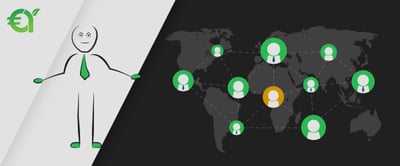
Conclusion
Recommended Brokers
FAQ
Foreign Exchange (FOREX in short) is the trading of one currency for another, the marketplace for which is the largest in the world at over $6 trillion daily.
Central Banks. Commercial Banks. Financial Institutions. Governments. Individual Investors and/or Currency Speculators.
FOREX trading is the real-time buying of one currency and selling another. Currencies are traded through a broker or a dealer and are traded in pairs.
Like most financial markets, the FOREX market is primarily driven by the forces of supply and demand, as well as by other factors, such as economic and political news and events.
Leverage is a credit facility provided by FOREX brokers to traders, enabling them to borrow a certain amount of the money needed to invest in a currency trade. This, in turn, increases the purchasing power of the trader, but also the risks.
